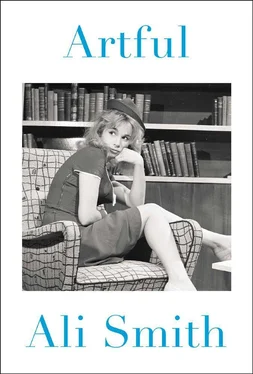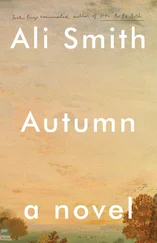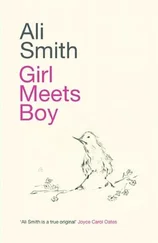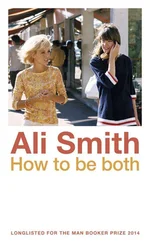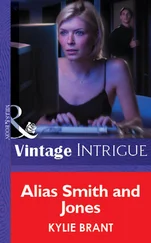In Gray’s work, physically, thematically, and politically, the margins seethe with life, alive with an authority that takes its power from refusing mainstream authority. His first novel, Lanark (1981), was a juxtapositioning fusion of futuristic fantasy and realism which changed the chemical of both genres in the combination; in its Epilogue Gray filled the margins next to the main body of the text with what he called his Index of Plagiarisms. He included as a plagiarized source for chapter 47 (a chapter which doesn’t exist) a complete short story in the margin of page 491, written by that other twentieth-century Scottish revivifier of fictional forms, James Kelman, and called Acid:
In this factory in the north of England acid was essential. It was contained in large vats.
Gangways were laid above them. Before these gangways were made completely safe a young man fell into a vat feet first. His screams of agony were heard all over the department. Except for one old fellow the large body of men was so horrified that for a time not one of them could move. In an instant this old fellow who was also the young man’s father had clambered up and along the gangway carrying a big pole. Sorry Hughie, he said. And then ducked the young man below the surface. Obviously the old fellow had had to do this because only the head and shoulders…in fact, that which had been seen above the acid was all that remained of the young man.
Part joke, part apocrypha, part throwaway moment, part story which will gnaw at your bones, this discrete marginal moment is a demonstration of the edginess of edge, and of the power of editing, because the margins burn with the energy of the edit, being so pushed for space. ‘I feel as fastidious as though I wrote with acid,’ Katherine Mansfield — a New Zealander in exile in Europe, always a foreigner, always on the aesthetic edge of the group she called the Blooms berries, from her school days onwards always the outsider, ‘the little colonial,’ and still a marginal figure when it comes to how little she’s considered in terms of canonical modernism, and in terms of how little critical attention the short story merits as a form — wrote this phrase in her notebook, while she worked at the stories whose sharpness of shape and whose bite would change the form of the short story, cross all the lines and draw their own defining line in the development of the form.
Literary vagrancy is what Mansfield saw in Robert Louis Stevenson, for whom traveling hopefully was better than arriving; the writer Elizabeth Hardwick’s take on traveling, on the other hand, was this: ‘when you travel your first discovery is that you do not exist.’ ‘One of the great Modernist writers of displacement,’ the critic Lorna Sage called Mansfield, noting how in an average year she’d habitually change residence or city several times; Sage even suggests that for Mansfield the short story form was the one place she ‘felt at home…being so little at home anywhere else.’
3. Edge of the Woods: Putting the Us into Wandering Aengus
Here your talk broke down, like On Form broke down before it, into notes. I liked this broken place in you, but I’d loved reading you so fluently holding forth about screen. It was me who liked cinema, not you. We’d had a lot of arguments about it. And the thing about the Powell Pressburger target was something I’d actually once said to you. In fact, I’d said a lot of those things to you, about Chaplin and Hitchcock, and it was me who’d made you sit down with me and watch them both. I couldn’t believe that what I’d said had got into your writing. It was thrilling. It felt fine. And I’d sat up straight in my seat when I got to the bit about Nancy on the bridge. It was like we were reading the same book, like you were just ahead of me in the reading.
What was left of On Edge was a poem you’d typed out and printed up: One Art, by Elizabeth Bishop. You’d written in pencil in the margin next to it, quite legibly for you, the villanelle form holds all the lost things safe and simultaneously releases them, lets them be lost. NB how the level of loss builds to become a joke — until we get to the crux, the point, the prospect (way beyond, much worse than losing rivers and continents) of ‘losing you. ’
I read the poem. It made me laugh. I liked how the poet dared herself, and how she was lying, making things rhyme. You’d clearly planned to compare a poem by Yeats about a man called Wandering Aengus who goes fishing, catches a beautiful girl on his line, then, when she disappears, vows to keep walking till he can find her and take her hand, with a poem by Stevie Smith called Fairy Story, about someone who goes into the woods, gets lost, meets a ‘creature’ who tells the speaker to sing a song, that singing a song will make the time pass, and that holding hands with him will make the speaker not be scared anymore. ‘I sang a song, he let me go / But now I am home again there is nobody I know.’ After this you’d written: both poets left unhomed by their encounters with others; both encounters involving songs and hands.
You’d written about a man in a Greek myth, I couldn’t make out his name, who plays music so beautifully that the god Apollo challenges him to a music competition. If I win, Apollo says, then I get to skin you alive. The man agrees. Of course the god wins , you wrote, because gods always win, but the music played by the man who is bound to lose his skin moves to tears, moves more than any god’s perfect playing ever will, every living thing round him . Under this Greek myth you’d written: books and skins: books have spines because animals have spines — NB piece of leather forming fold of spine of book originally matched fold over spine of animal leather was cut from .
I got up. I walked round the room, saw all the books there on all the shelves. I came through to the front room and I picked up the photo on the mantelpiece, the one of us in the garden, you pretending to fan me with the rhubarb leaf, huge and green, holding it by its stalk, bright red. The stalk is withered dry, my love. The photo meant you were dead.
But the photo kind of meant I was dead too.
God. If I had a chance to fetch you from the underworld, to go down and persuade them and fetch you home, I’d never look back.
But maybe you wouldn’t want to come back. Maybe, like the woman in the poem, you were already root. Maybe that was why not even my imagination could bring you back anymore.
Imagine that hand on the end of that arm. Imagine it talking. If it was your hand, it’d be being high-handed, it’d probably be talking of Michelangelo, saying something really intelligent like do you remember the Michelangelo drawing I took you to see when it was on show, the one where the man is waking up from a dream? The beautiful man sitting on a box of masks, leaning on the large ball, the shape of which is a bit like buttocks or a peach — remember how he’s wakened by the boy with wings hovering upside down above him and holding the slim trumpet so close to his forehead that you can almost feel the hairs prickle in the space in between? It’s as if the man is being reborn, remember? But is he waking from a dream or is he waking into a dream?
Ah, I’d let a hand like yours take me anywhere, even down a path strewn with bones like the floor of the cave I’d seen in the film by Werner Herzog, the Chauvet cave in France where they discovered all those tens-of-thousands-of-years-old animal pictures on the walls, the beautiful four heads of the horses, the creatures with long sweeps of horn. Above the bones the earliest ever art. Even on a path strewn with bones like that I’d be okay in your good hand.
It’d be as if we were walking through the inside of a skull, the rock in the cave all folded formations like glittering linen. Then we’d cross a river, I suppose, in a boat with a three-headed dog. I could use the hand and the arm as an oar. Then we’d get to a room littered with all the things you’ve taken from our house, all manner of things which we had in our life, all the old clothes and shoes, the old toothbrushes, all the squeezed-out old halves of orange, they’ll all be there, like a junk shop of our lives, a bit like eBay, or the internet.
Читать дальше
